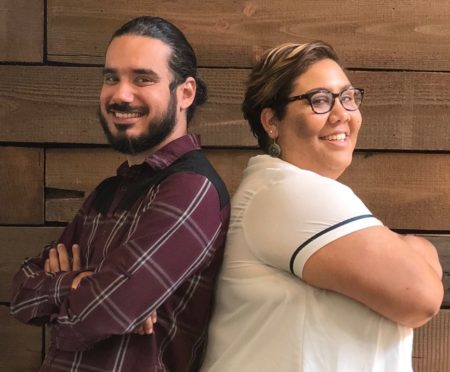By Derek Dias and Francesca McDaniel, WA Charters Family and Community Engagement (FACE) Team

Imagine your community. What does it look like? Is it a place or a group of people? Or, are you thinking of a distinct memory of belonging?
“Community”, like its cousins “equity” and “diversity”, is a term that has become so entrenched in our vocabulary as education advocates, that it has slowly lost its meaning. Even as we assign people and professional roles focused on “engaging communities,” many education nonprofits across Washington state struggle to meaningfully define community and community engagement. While it can be difficult to define, and even harder to define authentically, there is one thing we hope we can all agree on – meaningful community engagement work must be at the heart of every school.
After working in direct service to parents and students for over a combined total of more than a decade, the WA Charters FACE Team understands that authentic and successful family and community engagement relies upon relationship-building and listening. Yes, just listening. Even when it’s uncomfortable, when it isn’t easy. The kind of listening that sits with you and shifts behavior. That’s the work.
We believe that in its most basic form, community extends beyond school walls and zip codes – it’s the neighborhood “aunt” (there’s always one), it’s your church, mosque, temple, or synagogue. It’s your after-school program, the community pool, or the park near your school. More broadly, community is the system of people and organizations that supports and trusts each other, presently and historically.
This interconnected network of relationships and support both from within and beyond, form the woven mosaic that gives a community its warmth, characteristics, and patterns. For most communities, particularly those comprised of people with marginalized identities, communities offer protection, safety, and a sense of belonging; feelings that are not always experienced by students of color as they progress through the K-12 system.
This feeling of not belonging is no accident. Our education system was not built for or by people belonging to marginalized communities. Given our current political climate, restructuring our K-12 systems so that all students and families feel included is more important than ever. It is absolutely essential for school leaders and staff to adopt changes that work for the communities they serve – with a deep understanding of – and commitment to honoring – its history and character.
Many communities have solutions to their own challenges but need a platform to come together. It is incumbent upon more privileged groups to use their power to amplify those voices so that solutions can be heard. When school leaders work directly with families and keep them at the center, this real authentic change can occur. When parents are at the center of the conversation, outcomes for students, families, and schools improve. Parents feel heard, staff bonds to the school are stronger, and students feel valued.
It does take a committed effort. The work of engagement must be embedded in the culture of the school; it must be owned by all. But when schools and communities work in partnership and communication is cyclical and not extractive, the power to truly transform the existing educational paradigm can shift and the opportunity for real change to occur opens up.
The FACE Team recognizes an incredible opportunity to invigorate Washington’s education system. We see the opportunity to ensure parents and families are being listened to and are leading the charge for a new, inclusive, equitable system. We see the opportunity to impact lasting sustainable change, and that is what motivates us to continue the work we do every day.
